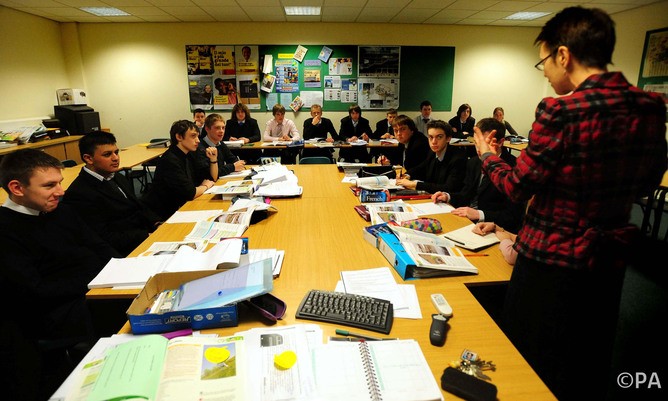By Joshua Dare-
The Department for Education (DfE) ordered a special measure for inadequate Croydon children’s services , The Eye Of Media.Com has learnt. The measure was put in place after Ofsted discovered a catalogue of serious failings. The failings included what Ofsted’s report described as ”a legacy of bad practice”, exposing the level of unprofessionalism that long prevailed at Croydon’s children services.
The statutory direction, from the government to Croydon council is an embarrassment to the council in response to a range of failings, and instructs the authority to develop a proposal for assistance from outstanding-rated Camden. Camden will now have to lead the disgraced council if substantially improving its children’s services. Under the terms of the agreement, senior managers from Camden Council’s children’s social care service will provide peer mentoring support to their counterparts at Croydon throughout the two years. Camden .
A partner in practice, approved by the Department of Education, will provide advice and support around priority areas, such as the development of Croydon’s recently launched Single Point of Contact for social care.
Ofsted’s monitoring report was focused on services to vulnerable adolescents, found that practice at Croydon remained “highly variable”. It follows an uncovering by inspectors in September 2017 of “widespread and serious failures” at the outer London borough and appointed commissioner Eleanor Brazil to consider the future of its children’s services.
SYSTEMIC FAILINGS
The report heavily criticized systemic failings in the practices at Croydon children’s services, highlighting a series of inadequacies plaguing the children’s services in Croydon. There was work not fully focusing on the key risks, and criticized the fact some key meetings did not take place. Ofsted said dedicated strategy meetings held regarding children at risk of child sexual exploitation or for children who are missing, was not consistent.
Evidence of written risk assessments on files was variable, the report stated, and there was no systematic practice in place to consistently oversee and monitor the key meetings at which risk is considered for this group of children. More worrying, the report said fewer staff who were working hard to meet the needs of children and bring casework back on track, were being hampered at times by a legacy of previous poor practice.
The report added that ”managers cannot be confident that each child is receiving an appropriate response when they go missing, and work needs to continue in line with their improvement plan”.
Ofsted noted that Croydon’s managers “showed an openness to advice, guidance and support” and to “considering their practice and the quality of services” during their monitoring visit, carried out in March.
“In a relatively short period of time, senior leaders have started to put in place an effective infrastructure,” inspectors found.
“There is a sound understanding of the areas that require change and an appropriate focus on the areas of priority.”
INADEQUATE SERVICE
The inspection covering both casework reviews and interviews, concluded that “too many children receive an inadequate service”. Inspectors concluded that despite the recognition of a “broad issue of risk” for vulnerable adolescents was recognized, “a detailed understanding of the risks and what needs to happen in response is not always evident or clear”.
Ofsted criticised the management oversight as ineffective, and said that middle managers in particular were not a “visible presence”. Written plans and records were found to be “highly variable” in terms of quality and content.
Inspectors noted that these general failings mirrored ones flagged up elsewhere in Croydon’s children’s services.
ADOLESCENCE CONCERNS
Ofsted also highlighted concerns more specific to the adolescent client group whose services were being evaluated. The monitoring report highlighted examples of ”inappropriate use of language or terminology”, which they said implied children placed themselves at risk”.
Some cases had not been appropriately escalated by managers to the local multi-agency sexual exploitation (MASE) panel, and the MASE itself was found not to be functioning effectively. Ofsted said
“Examples were seen of actions not followed up and confusion among practitioners about the role of the panel and how it fits with other forums to consider similar risks,” Ofsted said.
Staff turnover alongside an agency rate of 41% also meant some children faced too many changes of social workers, with newer staff also being “hampered at times by a legacy of previous poor practice”.
Nonetheless, the report praised the work of Croydon’s staff. “Inspectors were consistently impressed with the quality of frontline practitioners,” it said. “They displayed a good awareness of the needs of the children they worked with and a real commitment to ensuring that they engaged well with children.”
The report noted improvements made, but said the improvement remains too variable and this is particularly relevant for vulnerable adolescents, where the risks are highest. The service for these
children remains weak at this point of transition and development, with an urgent
need for improved management oversight.
IMPROVEMENT JOURNEY
Responding to the report, Croydon council leader Tony Newman said he was “pleased” that Ofsted had found progress was being made, and that the watchdog had praised frontline social workers.
“We’re still at a very early stage in our improvement journey and there’s much to be done to ensure we offer every child and young person the high-quality service we’re determined they’ll have,” Newman said. “We’ll maintain our focus, putting the children and families we serve at the heart of everything we do.”
Newman added that he was glad that Brazil and the DfE had shown “confidence” in the agreement entered into with Camden.
“We have a strong partnership and look forward to continuing to work with them,” he said.




